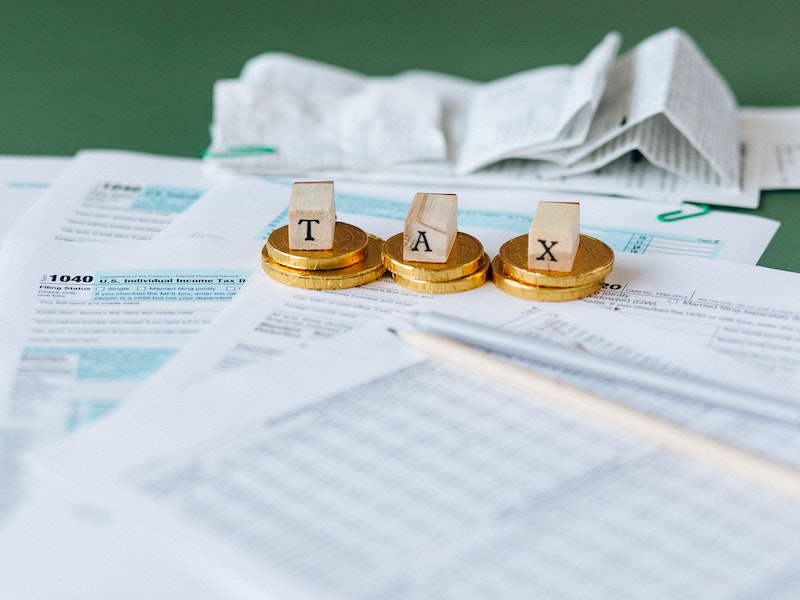The process of capital gains tax (CGT) while selling an investment property may be very complex. On the other hand, having the right strategies and knowledge property investors can legally minimize or even avoid CGT, which would lead to the best financial results of property sales. We will clarify the major points of Capital Gains Tax in Australia and give practical advice for property investors.
Everything You Need to Know about Capital Gains Tax
Capital Gains Tax (CGT) is paid when you have sold a property and earned some money from the sale. It is not a special tax but is a part of what you pay as income tax for the year. This will be the case if you sell a property at a higher price than what you paid for it. Hence, the extra money (profit) that you made from selling your property will be added to your income for that fiscal year, and you will be taxed on it.
It came into effect on September 20, 1985. Therefore, if you buy a property after this date, then you are entitled to CGT. When you sell your property you get money from it. This is income for you, and as a result you pay more tax. However, if you are not able to sell the asset on time or you sell it at a loss, you won’t be able to utilize this loss in the tax return for other income like your salary. In the place of this loss, you can only use this to take the tax you paid for the profit made at other sale of your property in the future.
CGT can be articulated in a very simple manner as the part of the tax bill that you pay on the sale of the property for more than what you bought it. It is worth knowing how it operates and when it is not applicable, like selling the main residence, to save you some cash.
Tips to Avoid Capital Gains Tax when Selling your Investment Property in Australia
The capital gain tax (CGT) tends to have a major impact on the potential profit from selling your productive property in Australia. But there are also some strategies that can lessen or totally avoid capital gain tax. Hence, the situation for property investors is more appealing.
- Utilize the Main Residence Exemption: The Australian Tax Office (ATO) provides an exemption from the capital gains tax for properties that are considered by law as your permanent residence. However, if the property is only rented out but you yourself lived in it at some point or you did not claim another property as your main residence, it may still be exempted. This strategy is rather complicated and has to be conducted very thoroughly while ATO requirements should be met in order to be eligible.
- Leverage the Six-Year Rule: This regulation permits the owner of the property to rent out his main residence for a maximum of 6 years without losing the main residence exemption from capital gains tax. It is one of the possible options for investors who are temporarily working or living in another city but intend to go back to their hometown or sell their property within the next six years. This flexibility is, however, extremely important for you to remain tax efficient in your investment strategy.
- Capital Gains Tax Discount: For properties that are held by more than 12 months, ATO provides a 50% CGT concession for individuals and trusts. Such a big decrease can be a game-changer for your tax liability, and thus it is important to consider it when your investment strategy is long-term oriented. You can make use of the services of a property investment advisor to determine the period of sale which will offer you a potential discount on your due taxes.
- Invest Through an SMSF: Land acquired by a super fund can be taxed in a different way as SMSF subject to a lower CGT liability. The profit’s income, including capital receipts, is taxed at an attractive rate, which can be reduced for assets retained longer than 12 months. Furthermore, tax-free capital gain from the sale of a property comes into the picture if the SMSF is in the pension phase.
- Consider Renovation and Improvements: The major alternative is investing in the house renovation and improvements which will increase the cost base and so when you sell the house you get a lower capital gain. The approach not only provides a superficial market value to the property but also serves as an indirect way to avoid CGT. Maintain accurate records of all costs associated with the renovation, as they can be a key factor when it comes to working out the costs base.
When Do You Have to Pay Capital Gains Tax?
Capital gains tax becomes relevant under specific circumstances, primarily revolving around the sale of an asset like an investment property. Understanding when CGT is payable is essential for effective financial planning and tax compliance.
- Sale of a Capital Asset: CGT takes place when you sell your capital work, for instance, an investment property. The CGT date that is most critical is the one of the contract, not the completion. Accordingly, the financial year in which the contract is signed indicates the year you must report and pay CGT.
- Post-1985 Acquisitions: Only the properties acquired after the 20th of September 1985 are taxable under the CGT. This date is meaningful to the ATO regulations as it’s the day that CGT provisions began. Knowing when your property was purchased will be your key to success in meeting your Capital Gains Tax responsibilities.
- Inclusion in Your Taxable Income: The income tax return that you file annually must include the net capital gain, which is the difference between your capital gain and your capital losses for the year. This consideration could ultimately result in you losing the low tax bracket status, and therefore will be taxed at the higher rate.
- Timing of the Sale: The period in which you sell your property will substantially influence the amount of your CGT bill. If the property is sold later than 12 months after the purchase, 50% of the CGT can be credited to you. Moreover, adjusting the sale date to a year with lower income can help you pay less taxes due to lesser tax rate applied to your long term capital gain.
- Consulting Professionals: By seeking the assistance of a property investment advisor or investment property buyers agent, you will learn more about the tax implications and how to best strategize for your unique case. The level of their knowledge and experience can be a great ally especially for the ones who want to go through all the complexities of tax planning. This will enable them to make the right investment decisions.
How Does the CGT 6-Year Rule Apply to Your Investment Property?
The CGT 6-year rule provides incomparable advantage for property investors. If your main residential will become an investment property, you can rent it out for up to six years being able to qualify for the main residence CGT exemption upon the sale. This adaptability will surely catch the fancy of the individuals who are temporarily working in some other place or are there for any personal reasons. It is that if you move to your property in next six years or sell your property within this time frame, you can possibly sucessfully escape CGT. This rule speaks to the need for strategic planning and the involvement of a property investment advisor who will ensure that the most is made of the tax advantages.
FAQs
Can You Avoid CGT When Selling an SMSF Investment?
Yes, you may well escape or massively cut back on CGT in case of selling an investment property owned by an SMSF, more so if your fund is in the pension phase. This period gives rise to a scenario where the capital gains earned from the sale of the property can be exempted from taxation. It is necessary to seek advice from a property investment advisor who will tailor the recommendations to your specific SMSF, as the rules are often complicated and can depend on the situation of your SMSF.
What are the Types of Capital Assets?
Capital assets, in particular, are property that is classified under this category and it can be anything from stocks, bonds, houses, and cars. When we talk about an investment, the term capital assets represents the large investment types such as real estate properties, shares, or business assets. It is important to note that the CGT treatment for each type of capital asset may vary, and therefore, the knowledge of how each asset is treated under the Australian tax law is an inevitability.
Do I have to pay capital gains tax when I sell my house in Australia?
Not necessarily. If the house sold was the place where you lived before, you may not have to pay CGT due to the Principal home exemption. But, if you have been using the house to generate any income (say, renting out a room) or it is a second residence, you will probably be liable to CGT on the profit made from the sale.
How can I invest in property to avoid capital gains tax?
Using a strategy to minimize CGT from property investment means that you need to think and act carefully, and could also include using the main residence exemption, applying the six-year rule, or purchasing property through the SMSF. Tools like upgrading the property to raise your cost basis, and postponing the sale to the year when your income is lower can be effective in reducing your CGT amount. Make sure that you get help from property investment expert to have strategies which are customized for your investment portfolio.
How much is capital gains tax in Australia?
The amount of CGT you pay in Australia will be different to each taxpayer and will be based on total taxable income which is inclusive of capital gain. The income tax gain gets added to your income and taxed at the rate of your marginal tax bracket. If you have been the owner of the property for over one year, this means that you eligible for a 50% discount on the capital gain. The exact amount of tax you’ll have to pay will depend on these factors, and that makes the task of calculating your potential CGT liability or tax planning very important or professional advice is needed.



